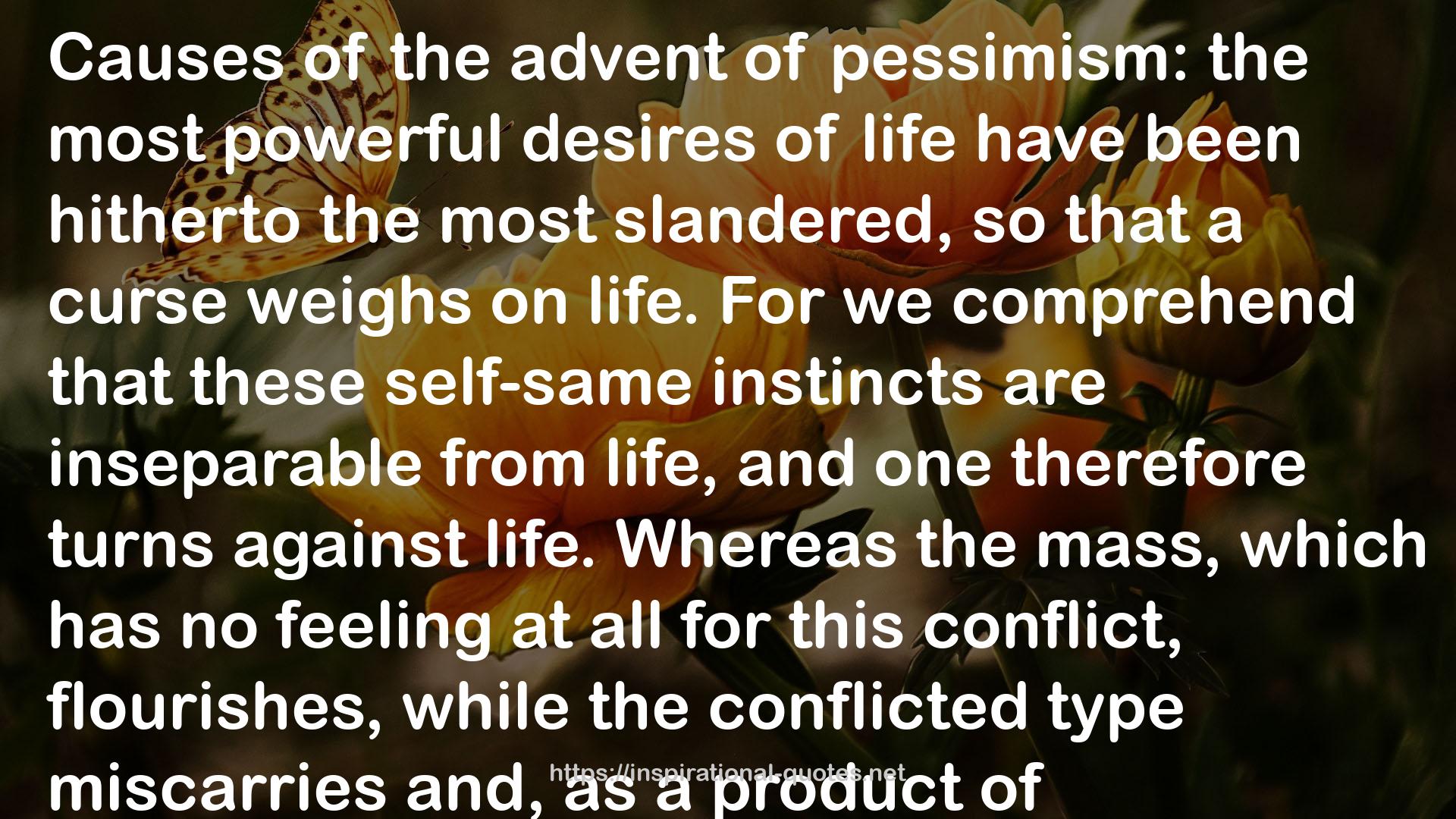" Causes of the advent of pessimism: the most powerful desires of life have been hitherto the most slandered, so that a curse weighs on life. For we comprehend that these self-same instincts are inseparable from life, and one therefore turns against life. Whereas the mass, which has no feeling at all for this conflict, flourishes, while the conflicted type miscarries and, as a product of degeneration, invites antipathy–that the mediocre, on the other hand, when they pose as the goal and meaning of existence, arouse nausea and indignation. And the individual, faced with this tremendous machinery, loses courage and submits. The herd, the mass, 'society', unlearns modesty and blows up its needs into cosmic and metaphysical values. In this way the whole of existence is vulgarised; and in so far as the mass is dominant it bullies the exceptions, so that they lose faith in themselves and become nihilists.
The question 'for what?', after a painful struggle, even victory. That something is a hundred times more important than the question of whether we feel well or not–and consequently whether others feel well or not. The predominance of suffering over pleasure, or its opposite (hedonism) are already signposts to nihilism. For in both cases no ultimate meaning is posited except the appearance of pleasure or pain. But for any worthy man, the value of life is certainly not measured by the standard of these trifles. A suffering might predominate, and in spite of this, a powerful will might exist, a Yes to life, a need and acceptance of this predominance. "
― Friedrich Nietzsche , The Will to Power
